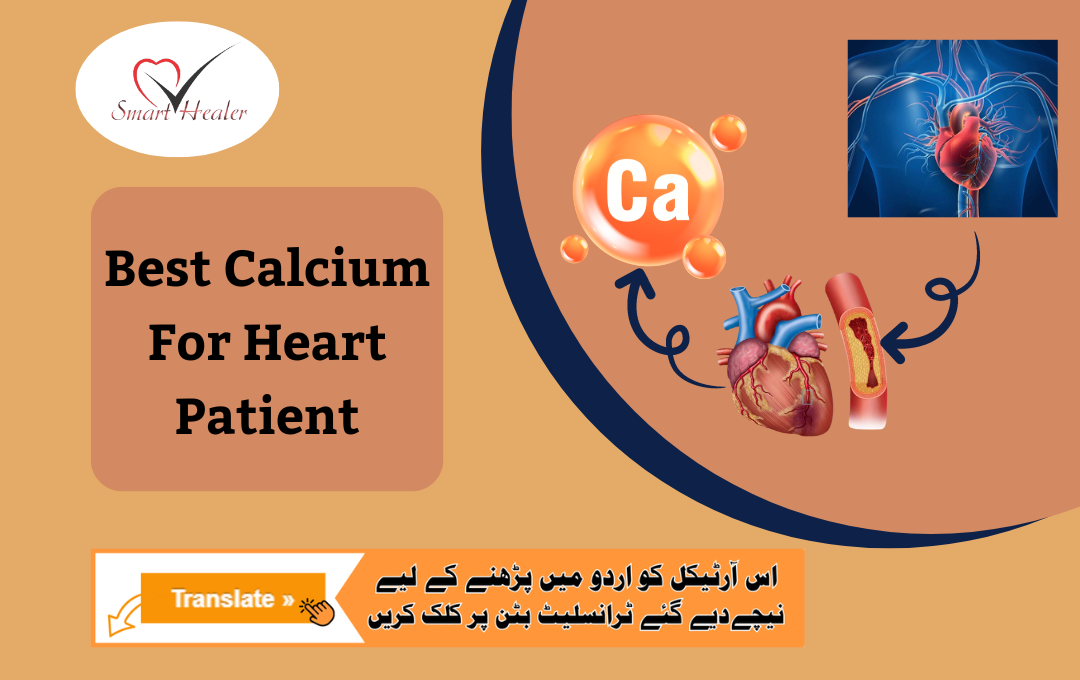Calcium Supplementation for Heart Patients
For individuals managing heart health, calcium intake is often a topic of concern. Calcium plays a crucial role not only in bone health but also in cardiovascular function. However, traditional sources of calcium, such as dairy products or supplements derived from limestone (calcium carbonate), have raised some questions regarding their impact on heart health, particularly in individuals with existing cardiovascular conditions.
The Importance of Calcium for Heart Health
Calcium is vital for muscle function, including the heart muscle. It supports the contraction and relaxation cycles of the heart and helps in maintaining a regular heartbeat. Insufficient calcium intake can lead to increased risks of hypertension (high blood pressure) and other cardiovascular issues.
Balancing Calcium Intake
For heart patients, maintaining the right balance of calcium is a delicate act. Too little and they risk elevating their blood pressure; too much, and they can harden their arteries. The key is to moderate calcium intake and ensure the body absorbs it properly.
Traditionally, calcium supplements derived from limestone or other rocks have been used to fulfill daily calcium needs. However, these inorganic forms of calcium can sometimes be hard for the body to absorb and can lead to an accumulation of calcium deposits in the arteries.
Red algae-derived calcium, sourced from plants, plays a crucial role here. Unlike other forms, it directly supports bone health without posing a risk of arterial calcification. This makes it the optimal choice for heart patients looking to minimize cardiovascular risks.
Concerns with Traditional Calcium Supplements
Many calcium supplements available on the market are derived from calcium carbonate, often sourced from limestone. Some studies have suggested that excessive intake of calcium carbonate supplements might contribute to cardiovascular risks, such as calcification of arteries or potential interference with cardiovascular medications.
Studies, such as the EPIC-Heidelberg study, have indicated that high doses of these supplements (≥1,000 mg/day) might increase the risk of heart attacks.
This risk arises because excessive supplemental calcium can lead to calcification in arteries, increasing cardiovascular risks.
Red Algae Calcium: A Safer Alternative
In recent years, red algae-derived calcium has emerged as a promising alternative to traditional calcium supplements sourced from limestone or other mineral forms. Red algae, particularly species like Lithothamnion found in products such as Osteosun Plus, naturally accumulate calcium carbonate in their cell walls as they thrive in marine environments.
This natural form of calcium carbonate also contains other beneficial minerals like magnesium and trace elements, which collectively contribute to its overall health benefits. This form of calcium offers several advantages:
Natural Source:
Red algae calcium is derived from a natural marine source, providing a bioavailable form of calcium along with essential minerals like magnesium and trace elements.
Calcium-to-Magnesium Ratio:
It naturally contains a balanced ratio of calcium to magnesium, which is beneficial for heart health. Magnesium helps regulate heart rhythm and supports muscle function, complementing the role of calcium.
Absorption and Safety:
Studies indicate that calcium derived from red algae may be more easily absorbed by the body compared to calcium carbonate. This efficient absorption potentially reduces the risk of calcium deposits in blood vessels, which is a concern with other forms of calcium supplements.
Low Contaminant Risk:
Red algae calcium is harvested from pristine marine environments and typically undergo stringent purification processes, reducing the risk of contaminants often associated with other calcium sources.
Bone Health:
People over 40 typically experience an annual 1% decline in bone mineral density. While regular rock calcium can reduce this loss to 0.5% annually, algae calcium stands out by not only halting bone loss but also promoting new bone formation. The combined action of calcium, magnesium, and trace minerals in red algae calcium supports both bone strength and cardiovascular function synergistically. Osteosun Plus tablets with added Vitamin D further enhance calcium absorption, maximizing its benefits while safeguarding heart health.
Recommendations for Heart Patients
For individuals with heart conditions or those at risk, consulting with a healthcare provider before starting any new supplement regimen is crucial. They can provide personalized advice based on individual health status and potential interactions with medications.
When considering calcium supplementation:
Choose Wisely: Opt for supplements derived from red algae (Lithothamnion calcareum or corallioides) as a potentially safer alternative to traditional calcium carbonate.
Monitor Intake: Ensure calcium intake aligns with recommended daily allowances and is balanced with magnesium intake, which supports cardiovascular health.
Regular Follow-up: Regularly review with a healthcare provider to monitor calcium levels and adjust supplementation as needed, especially if changes in heart health or medication regimen occur.
Conclusion
Maintaining adequate calcium intake is essential for overall health, including heart health. For individuals concerned about the impact of calcium supplements on cardiovascular health, red algae-derived calcium presents a promising alternative. Its natural origin, bioavailability, and balanced mineral content make it a safer choice, particularly for those managing heart conditions. As always, informed decisions and personalized guidance from healthcare providers are key to supporting heart health through proper nutrition and supplementation.
Note: This article provides information only. Please consult your doctor before considering any supplements.



Leave Your Comment